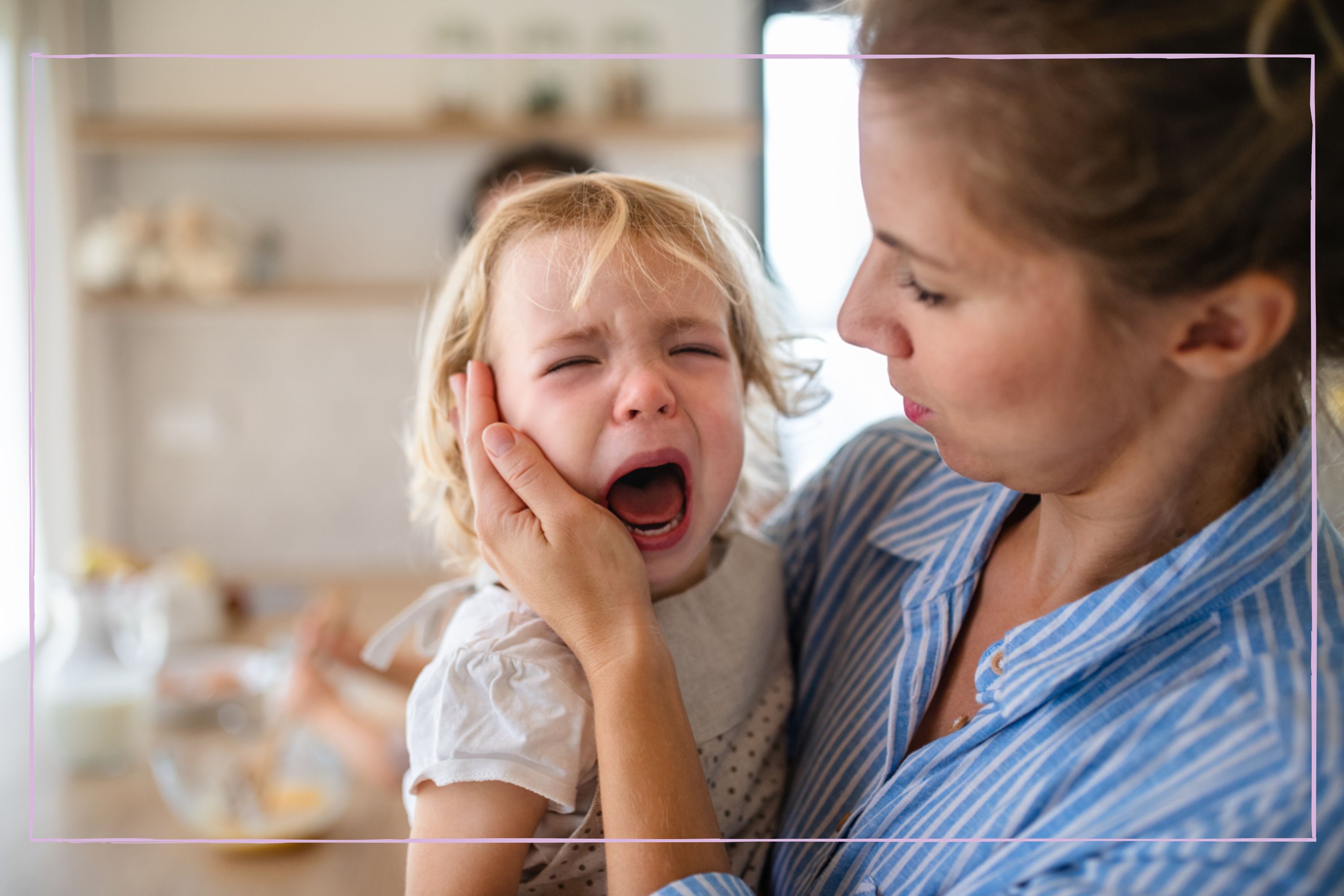The 7 parenting styles that are popular at the moment - which do you relate to and how is it impacting your kids?
Whether you're Tiger, gentle, or authoritative here's how it's impacting...

Ever wonder what your parenting style is? Some parents research and choose, others fall into a category based on their upbringing - whether they realise it or not.
When it comes to raising a child, after you've survived matrescence and kept a tiny human alive, the level of parenting kicks up a notch. And, there is certainly no one specific way to do it that is strictly right or wrong, which is why so many different parenting styles exist. Such as gentle parenting.
Every parent has the freedom to adopt the parenting style they believe is most effective, in both disciplining their child and helping shape them into the best version of themselves that they can be. Although there is a vast number of parenting styles that have a lot of conflicting qualities, there are some that also share many commonalities. These similarities allow us to identify parenting styles as falling within certain groups.
Scroll down to learn about the seven different groups of parenting styles and see where you fit on the parenting spectrum...
Parenting styles
- Attachment parenting
- Permissive parenting
- Tiger parenting
- Helicopter parenting
- Therapeutic parenting
- Gentle parenting
- Authoritative parenting
Attachment parenting
Attachment parenting is a style of parenting that focuses on the physical closeness between parent and child as an imperative for an infants’ emotional security.
It is based on a theory that suggests babies and children need emotional and physical closeness to their parent to develop into stable adults.
Attachment methods include avoiding all negative thoughts about pregnancy, breastfeeding, and using nurturing touch by engaging in co-sleeping and joint baths with your child, as well as carrying them in front-facing baby carriers.
GoodtoKnow Newsletter
Parenting advice, hot topics, best buys and family finance tips delivered straight to your inbox.
Permissive parenting
Permissive parenting is one of the most lenient parenting styles, whereby parents avoid all confrontation and punishment with their children by refusing to set ground rules.
Permissive parents are more concerned with being seen as their kid’s friend rather than an authoritative figure, and they tend to form a strong bond with their children.
Although permissive parents form a very strong bond with their offspring, children may exhibit more behavioural problems later on in life, as they don’t appreciate authority or rules.
There's lots to say on permissive parenting so take a look at our more detailed article.

Tiger parenting
Tiger parenting refers to one of the authoritarian parenting styles favoured largely in families of Asian heritage.
Tiger parents demand that children follow a gruelling schedule of intensive studying and extra-curricular activities, particularly in high-earning, in-demand occupations such as law and medicine, then measure their children’s success by these achievements.
This style of parenting may allow children to become more productive, motivated and responsible. Critics believe, however, that this approach stifles the true creativity and individuality of children, as they’re given very little room to pursue their own interests and make their own choices.
We dig a little deeper into this style over on our tiger parenting article.
Helicopter parenting
The term ‘helicopter parent’ was first used in Parents & Teenagers, a book written in 1969 by Dr. Haim Ginott. It is used to describe parents who hover over their children like a helicopter and is ‘overly involved’ in their lives.
Experts tend to believe that in almost every case, helicopter parents are acting out of love and a desire to do the best for their child – however, they just take it a little too far.
Helicopter parents are likely to know where their kids are at all times, which is an important safety consideration, however, it has also been criticised as shielding kids from natural consequences in life such as loss and failure.
This prevents children from developing their coping mechanisms for negative events that may occur in their adult lives.
Read more about helicopter parenting with our in-depth article.
Therapeutic parenting
Therapeutic parenting is the term used to describe another high nurture parenting style that fosters feelings of safety and connectedness. This style of parenting, however, tends to be more commonly used so that traumatised children can begin to heal and attach.
Therapeutic parenting provides a way to meet these child’s needs, so that they can feel safe again. It involves setting aside traditional parenting skills such as time-outs and corporal punishment, in favour of PACE, which is a methodology that aims to make a child feel safe so they can learn to trust.
PACE involves a parent adopting the following approaches:
- Playfulness: creating an environment of lightness and interest when communicating; for example, using a light tone when telling a story and expressing fun and joy over being stern or irritated
- Acceptance: showing acceptance of their child’s wishes, feelings, thoughts, urges, motives and perceptions without judging or evaluating
- Curiosity: showing that they understand their child’s behaviour. Curiosity also helps parents teach their child how to understand their own behaviour
- Empathy: feeling compassion and the emotions of a sad or distressed child and actively showing this so their child feels understood. Parents would offer support, comfort, love and commitment.

It is often regarded as being exclusively for traumatised children who have nearly always been in care, but it can also be used with securely attached children, too.
It can be hugely beneficial to children, as it allows the child to form healthy attachments to others and build trust in adults.
Read more about therapeutic parenting we take a deeper look at what it is, how it works and what you need to do to implement this style.
Gentle parenting
Gentle parenting is a style that has gained traction with parents in the last five years or so. It's an alternative approach to bringing up children, centered around understanding, empathy, and respect.
It's a style of parenting without shame, blame, or punishment, it's a peaceful and positive approach that is different from the traditional authoritarian ‘old school’ parenting style. It is a parenting mindset, characterised by empathy, respect, understanding, and boundaries.
To read more on this style take a look at our gentle parenting article, where break it down further and share expert opinions.
Authoritative parenting
Authoritative parenting is one of the strictest parenting styles, as authoritative parents are often viewed as disciplinarians.
Infamous for uttering the words ‘Because I said so’ when a child questions the reasoning behind a rule, they’re not interested in negotiation and their focus is on obedience.
Authoritative parents’ expectations of their child, for example, their success in sports, academics or music, are very high with limited flexibility. Advocates of this parenting style argue children tend to be more disciplined and understand what’s expected of them, due to strict rules being in place.
Parenting is the hardest job in the world, it kicks off with post natal life and then once you've made it through maternity leave and stared down the barrel of post-natal depression you then have explaining the mental load to contend with.
Stephanie has been a journalist since 2008, she is a true dynamo in the world of women's lifestyle and family content. From child development and psychology to delicious recipes, interior inspiration, and fun-packed kids' activities, she covers it all with flair. Whether it's the emotional journey of matrescence, the mental juggling act of being the default parent, or breaking the cycle of parenting patterns, Stephanie knows it inside out backed by her studies in child psychology. Stephanie lives in Kent with her husband and son, Ted. Just keeping on top of school emails/fundraisers/non-uniform days/packed lunches is her second full-time job.
-
 The 'incredibly helpful' 30-second rule – liked by nearly 2 million people – that your kid needs to know about
The 'incredibly helpful' 30-second rule – liked by nearly 2 million people – that your kid needs to know aboutThis useful piece of advice is worth remembering for all of us, not just our children
By Adam England Published
-
 What is ‘sturdy parenting’? Child psychologist Dr Becky explains the benefits of this technique
What is ‘sturdy parenting’? Child psychologist Dr Becky explains the benefits of this techniqueIf you're at a loss when it comes to disciplining your kids, sturdy parenting might help - and it's approved by child psychologist Dr Becky.
By Ellie Hutchings Published
-
 3 tips to set screen time boundaries from parenting experts Dr Becky Kennedy and Professor Emily Oster - and #1 is an important reminder
3 tips to set screen time boundaries from parenting experts Dr Becky Kennedy and Professor Emily Oster - and #1 is an important reminderStruggling to set screen time boundaries with your kids? Parenting experts Dr Becky Kennedy and Professor Emily Oster have shared three top tips.
By Ellie Hutchings Published
-
 Could 'lazy parenting' be the next big thing? 2 psychologists share why it can be beneficial for development, but not everyone agrees
Could 'lazy parenting' be the next big thing? 2 psychologists share why it can be beneficial for development, but not everyone agrees'We need more lazy parents' and here's why, according to two child psychologists
By Ellie Hutchings Published
-
 Parents, do you know what H.E.L.P. stands for? Psychologists swear by this acronym to navigate those tough parenting moments we all face
Parents, do you know what H.E.L.P. stands for? Psychologists swear by this acronym to navigate those tough parenting moments we all faceRemember: Halt, Empathy, Limits, Proximity...
By Ellie Hutchings Published
-
 Sticker charts 'don't work in the long run' says psychotherapist - try these 8 tips to teach kids intrinsic motivation instead
Sticker charts 'don't work in the long run' says psychotherapist - try these 8 tips to teach kids intrinsic motivation insteadOne expert has explained eight things you can do as a parent to help your child develop intrinsic motivation - and it means abandoning the sticker chart.
By Ellie Hutchings Published
-
 Reflective parenting could help your teenager manage their big emotions, new research shows - here are 5 steps to try
Reflective parenting could help your teenager manage their big emotions, new research shows - here are 5 steps to tryThe teenage years are tough for everyone involved. But research has suggested that an approach known as 'reflective parenting' can be the key to reconnecting.
By Ellie Hutchings Published
-
 These 5 'game changing' phrases can teach your children about the mental load, according to a psychologist - and it could set them in good stead for adulthood
These 5 'game changing' phrases can teach your children about the mental load, according to a psychologist - and it could set them in good stead for adulthood"Change at home can change society"
By Ellie Hutchings Published